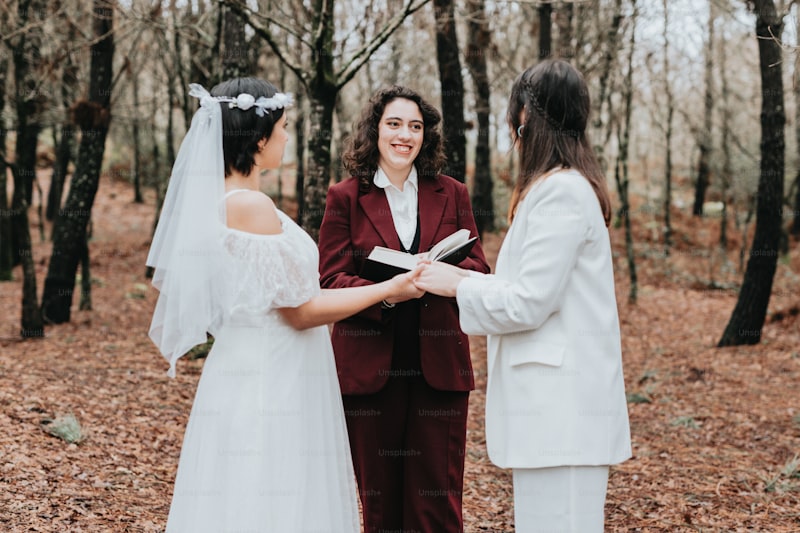Incorporating Local Traditions into Wedding Planning: A Guide to Personalizing Your Big Day
Weddings are a celebration of love, commitment, and cultural significance. One of the most meaningful ways to personalize your wedding is to incorporate local traditions into your wedding planning. This not only honors your heritage but also enhances the experience for you and your guests. In this article, we will explore various ways to integrate local customs and traditions into your wedding planning, ensuring that your big day reflects your unique identity and values.
Understanding the Importance of Local Traditions
Every culture has its own wedding traditions, ranging from rituals to attire, and food to music. Incorporating local traditions into your wedding allows you to:
- Connect with Heritage: Emphasizing local customs helps you celebrate your roots and share them with your partner and guests.
- Enhance Guest Experience: Familiar rituals and customs can create a sense of belonging for your guests who share the same cultural background.
- Create Lasting Memories: Unique traditions can make your wedding more memorable and meaningful for everyone involved.
Ways to Incorporate Local Traditions
Here are several effective ways to weave local customs into your wedding planning:
1. Venue Selection
Choosing a venue that aligns with your cultural background can set the tone for your wedding. For example, if you’re planning a traditional Indian wedding, consider a venue that can accommodate a large guest list and has beautiful outdoor spaces for rituals like the Mehndi and Sangeet. If you're getting married in a historic town in Italy, a rustic villa may be the perfect spot that reflects local architecture and charm.
2. Ceremonial Rites
Incorporate local rituals that hold significance for you and your partner. For instance:
| Culture | Tradition | Description |
| Jewish | Ketubah | A marriage contract that outlines the responsibilities of the groom. |
| Hindu | Saat Phere | The couple takes seven circles around a sacred fire, making vows at each turn. |
| Mexican | Lazo | A ribbon or rosary is placed around the couple in a figure-eight shape to symbolize unity. |
| Chinese | Tea Ceremony | A tradition where the couple serves tea to their elders as a sign of respect and gratitude. |
3. Attire
Your wedding attire is a canvas to express your cultural heritage. Traditional garments not only showcase your background but can also make your day visually stunning. If you’re planning a wedding in Scotland, consider a tailored kilt for the groom and a flowing gown for the bride that incorporates tartan patterns. Alternatively, an Asian wedding may feature a vibrant red cheongsam or a beautifully embroidered lehenga.
4. Food and Beverage
Food is a significant aspect of any celebration. Incorporating local cuisine can offer your guests a taste of your culture. You might opt for:
- Traditional appetizers, such as spanakopita for a Greek wedding.
- A multi-course meal featuring regional dishes, like paella for a Spanish wedding.
- Signature cocktails using local spirits or ingredients, such as bourbon for a Southern American wedding.
5. Music and Entertainment
Music sets the mood and adds energy to your wedding festivities. Incorporating local musicians or traditional performances can make your wedding truly unforgettable. For example, hiring a mariachi band for a Mexican wedding or a Bagpipe player for a Scottish ceremony can enhance the cultural ambiance.
6. Décor
Your wedding décor should reflect both your personal style and cultural background. Consider using traditional colors, symbols, and materials that are significant to your heritage. For example:
- Use traditional floral arrangements that hold symbolic meanings in your culture.
- Incorporate ethnic fabrics, like silk or brocade, into table linens and chair covers.
- Add meaningful artifacts or heirlooms as part of the centerpieces or settings.
7. Guest Involvement
Engage your guests in the celebration of your local traditions. This can include:
- Teaching your guests a traditional dance during the reception.
- Asking guests to wear traditional attire that reflects your culture.
- Creating programs or signage that explains the significance of various customs throughout the event.

Challenges in Incorporating Traditions
While embracing local traditions can be rewarding, it may also come with challenges. Consider the following:
- Cultural Sensitivity: Ensure that you’re aware of and respectful towards the traditions you are incorporating, particularly if you and your partner come from different backgrounds.
- Time and Resources: Some traditions may require more time and resources than a standard wedding. Plan accordingly to avoid unnecessary stress.
- Guest Expectations: While you may want to incorporate specific traditions, your guests might have varying levels of familiarity. Consider how to make them feel comfortable and included.
Conclusion
Incorporating local traditions into your wedding planning is a beautiful way to celebrate your heritage and create a personalized experience for you and your guests. From selecting the right venue to infusing local rituals, attire, and cuisine, every detail can reflect your cultural background. Remember that the ultimate goal is to honor your love story while creating lasting memories. Embrace the unique aspects of your culture, and don’t hesitate to blend them with modern elements if that feels right for you. Happy planning!
Tip: Before finalizing any local traditions, discuss them thoroughly with your partner and consider the preferences of both families to create a harmonious celebration.